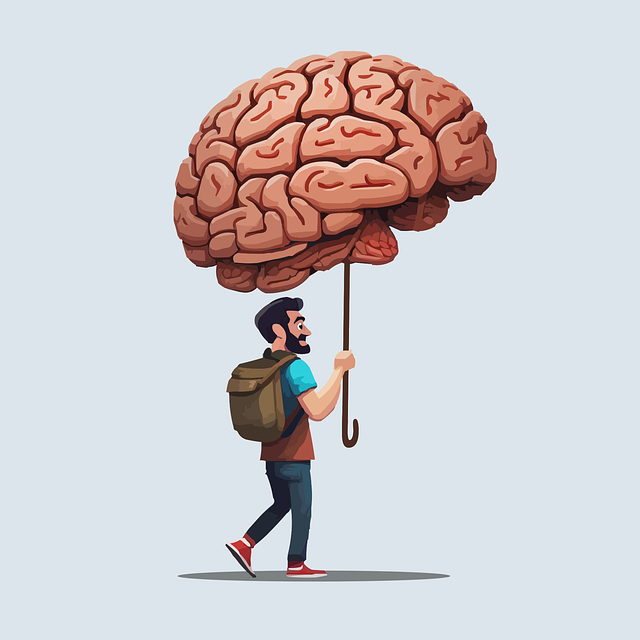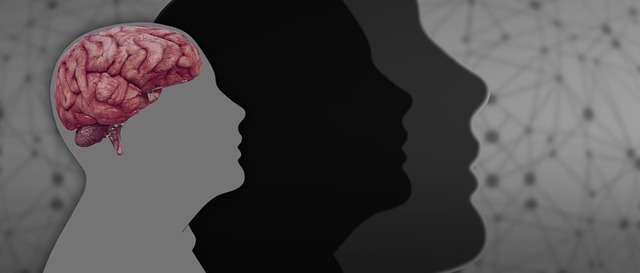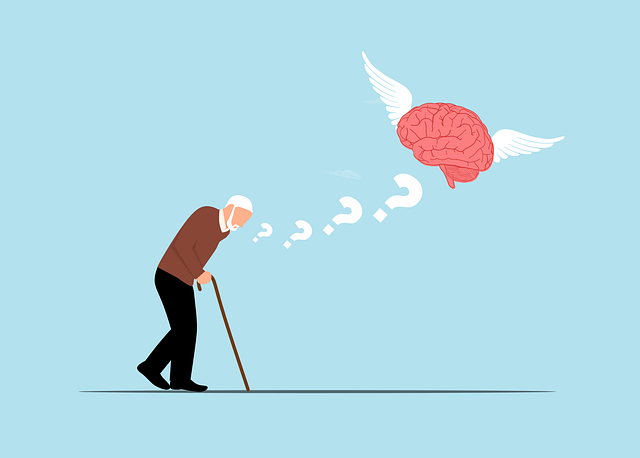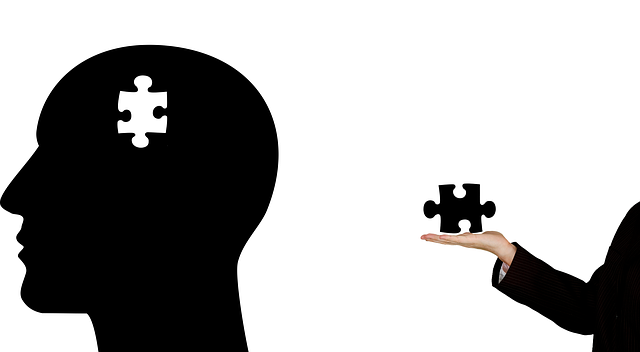In Denver, where diversity thrives, cultural sensitivity is a cornerstone of effective therapy, especially in Denver Developmental Disability Therapy. Therapists navigate the city's vibrant tapestry by understanding and respecting diverse cultural beliefs, values, and communication styles. This approach ensures inclusive environments, improves client engagement, and addresses unique mental health challenges. By embracing continuous learning, self-awareness, and mindfulness, therapists deliver compassionate care tailored to each client's cultural context, fostering trust and enhancing therapeutic outcomes in a bustling, multicultural metropolis like Denver.
In the diverse landscape of mental healthcare, cultural sensitivity is a vital tool for fostering effective therapy. This article explores this cornerstone of effective treatment, with a focus on Denver’s vibrant and varied community. We delve into how cultural background significantly influences mental health-seeking behaviors and present strategies for culturally competent practice, particularly in the context of Denver Developmental Disability Therapy. By understanding and respecting cultural boundaries, therapists can build trust and enable healing.
- Understanding Cultural Sensitivity: A Cornerstone of Effective Therapy
- Navigating Denver's Diverse Community: A Therapist's Perspective
- The Impact of Cultural Background on Mental Health Seeking Behavior
- Strategies for Culturally Competent Practice in Developmental Disability Therapy
- Building Trust and Fostering Healing: Respecting Cultural Boundaries
Understanding Cultural Sensitivity: A Cornerstone of Effective Therapy

In the realm of mental healthcare, cultural sensitivity is a game-changer that fosters effective therapy. It involves recognizing and appreciating the diverse beliefs, values, and behaviors of individuals from various cultural backgrounds. Given that Denver Developmental Disability Therapy caters to a wide array of communities, professionals must navigate this complexity with finesse. By understanding and respecting these differences, therapists create a safe and inclusive environment, encouraging open communication and fostering trust.
This cornerstone of effective therapy goes beyond simple knowledge; it requires practitioners to develop self-awareness exercises and mindfulness meditation practices. Such techniques help professionals recognize their own biases and prevent burnout, enabling them to provide culturally responsive care. In light of these considerations, incorporating strategies for burnout prevention becomes vital, ensuring that therapists can sustain their practice while offering the best possible support to their clients, regardless of cultural background or identity.
Navigating Denver's Diverse Community: A Therapist's Perspective

In Denver, a vibrant city known for its diverse communities, therapists must be adept at navigating a tapestry of cultural backgrounds and experiences. This is especially pertinent when focusing on areas such as Denver Developmental Disability Therapy, where understanding and respecting individual cultural contexts can significantly impact treatment outcomes. The mental healthcare landscape here mirrors the city’s hustle and bustle—a melting pot of cultures, languages, and unique personal stories.
A therapist operating in Denver must recognize that every client brings their own set of beliefs, values, and challenges related to mental wellness, anxiety relief, and mood management. This cultural sensitivity is crucial in fostering a safe and supportive environment for healing. By embracing the city’s diversity, therapists can offer tailored care, ensuring that every individual receives effective treatment that respects their heritage and personal journey.
The Impact of Cultural Background on Mental Health Seeking Behavior

Mental health seeking behavior is deeply influenced by one’s cultural background, a factor that mental healthcare professionals in Denver must consider when providing services to diverse communities. Individuals from different cultures may approach mental health issues and treatment very uniquely. For instance, some cultures view mental distress as a personal weakness or family shame, leading to underreporting of symptoms and avoidance of professional help. Others have traditional healing practices that are the primary go-to for addressing emotional challenges, like herbal remedies or community rituals in Indigenous communities. Understanding these cultural nuances is paramount in Denver Developmental Disability Therapy, where therapists can create safe spaces that honor and incorporate clients’ cultural identities.
The impact of cultural background extends beyond beliefs and practices; it also influences communication styles, expectations of therapy, and perceptions of mental illness. For example, some cultures may emphasize collective over individual experiences, which could affect how a client expresses their feelings or interacts with their therapist. By recognizing and respecting these differences, therapists can foster trust, improve client engagement in treatment, and ultimately enhance the effectiveness of services provided through programs like Community Outreach Program Implementation that aim to promote inner strength development and mood management tailored to each individual’s cultural context.
Strategies for Culturally Competent Practice in Developmental Disability Therapy

In Denver Developmental Disability Therapy, fostering cultural sensitivity is paramount to delivering effective and compassionate care. Therapists must embrace a range of strategies to ensure they understand and respect clients’ diverse backgrounds, beliefs, and experiences. This involves actively listening to clients, being open to their unique perspectives, and adapting therapeutic approaches to align with their cultural values and norms. Educating oneself about different cultures, communities, and disabilities is a key step in this process. Therapists can benefit from workshops, training sessions, and continuous learning opportunities that focus on cultural competency.
Additionally, cultivating positive thinking and inner strength development among healthcare providers themselves is crucial for maintaining resilience and preventing burnout. Implementing burnout prevention strategies for healthcare providers can enhance their ability to offer consistent and quality care. By fostering a supportive work environment, encouraging open communication, and promoting self-care practices, therapists in Denver can better navigate the challenges that arise when working with clients from diverse backgrounds. This holistic approach not only benefits the providers but also strengthens the therapeutic bond between them and their clients.
Building Trust and Fostering Healing: Respecting Cultural Boundaries

In mental healthcare, building trust is paramount to fostering healing, especially when working with individuals from diverse cultural backgrounds. Respecting and understanding cultural boundaries is a cornerstone of effective therapy. At Denver Developmental Disability Therapy, we recognize that every client enters our care with a unique cultural lens, shaped by their community, family, and personal experiences. This cultural sensitivity guides our approach, ensuring that treatment plans are not only evidence-based but also culturally responsive.
By acknowledging and respecting these boundaries, therapists create a safe space for clients to explore sensitive topics openly. This involves adapting communication styles, incorporating culturally relevant resources, and being mindful of non-verbal cues. Incorporating elements from the client’s culture into therapy sessions can significantly enhance engagement and outcome. For instance, Mental Health Policy Analysis and Advocacy strategies that consider cultural context can improve access to care for underrepresented populations, while Mental Wellness Coaching Programs Development tailored to diverse needs may reduce barriers to treatment. Effective stress management techniques should also be culturally appropriate, addressing not just the mind but the whole person, including their cultural identity.
Cultural sensitivity is an indispensable aspect of mental healthcare, especially within diverse communities like Denver. As illustrated through various perspectives, including therapy in Denver’s diverse setting and strategies for developmental disability practices, culturally competent care significantly impacts patient outcomes. By understanding cultural nuances and respecting individual backgrounds, therapists can build trust, foster healing, and create a safe space for all clients, ultimately revolutionizing mental healthcare in Denver and beyond. This approach ensures that everyone receives the support they need, regardless of their cultural or developmental background.














